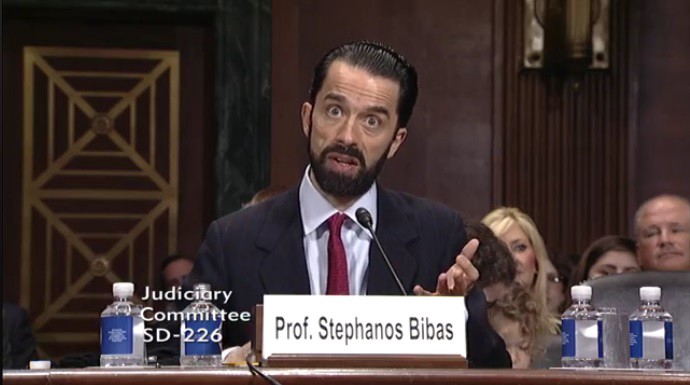Donald Trump and the limits of legal realism

This opinion from a Trump appointee to the 3rd circuit illustrates, among other things, the limits of the strongest versions of legal realism/critical legal studies, i.e., versions that claim the distinction between law and politics is meaningless, or nearly so:
Free, fair elections are the lifeblood of our democracy. Charges of unfairness are serious. But calling an election unfair does not make it so. Charges require specific allegations and then proof. We have neither here.
The Trump Presidential Campaign asserts that Pennsylvania’s 2020 election was unfair. But as lawyer Rudolph Giuliani stressed, the Campaign “doesn’t plead fraud. . . . [T]his is not a fraud case.” Mot. to Dismiss Hr’g Tr. 118:19–20, 137:18. Instead, it objects that Pennsylvania’s Secretary of State and some counties restricted poll watchers and let voters fix technical defects in their mail-in ballots. It offers nothing more.
This case is not about whether those claims are true. Rather, the Campaign appeals on a very narrow ground: whether the District Court abused its discretion in not letting the Campaign amend its complaint a second time. It did not.
Most of the claims in the Second Amended Complaint boil down to issues of state law. But Pennsylvania law is willing to overlook many technical defects. It favors counting votes as long as there is no fraud. Indeed, the Campaign has already litigated and lost many of these issues in state courts.
The Campaign tries to repackage these state-law claims as unconstitutional discrimination. Yet its allegations are vague and conclusory. It never alleges that anyone treated the Trump campaign or Trump votes worse than it treated the Biden campaign or Biden votes. And federal law does not require poll watchers or specify how they may observe. It also says nothing about curing technical state-law errors in ballots. Each of these defects is fatal, and the proposed Second Amended Complaint does not fix them. So the District Court properly denied leave to amend again.
Nor does the Campaign deserve an injunction to undo Pennsylvania’s certification of its votes. The Campaign’s claims have no merit. The number of ballots it specifically challenges is far smaller than the roughly 81,000-vote margin of victory. And it never claims fraud or that any votes were cast by illegal voters. Plus, tossing out millions of mail-in ballots would be drastic and unprecedented, disenfranchising a huge swath of the electorate and upsetting all down-ballot races too. That remedy would be grossly disproportionate to the procedural challenges raised. So we deny the motion for an injunction pending appeal.
An interesting note here is that the unanimous panel included the chief judge of the circuit, so this opinion was assigned to the Trump appointee, apparently to make the point as clearly as possible that this is frivolous litigation, that as the 21-page opinion makes clear, does not even allege, let alone offer any argument for the existence of, facts that could conceivably justify the relief sought. (I also enjoyed the specific and very unusual call out of the lawyer responsible for this particular set of Rule 11 violations. If there’s one thing we’ve learned is that Rudy can fail, over and over again).
As to the limits of legal realism, while there is great force to various arguments that the distinction between law and politics is greatly exaggerated by conventional legal and political rhetoric, that distinction isn’t completely empty. You have to give even the most contemptible Federalist Society hacks something to work with. (I know the judge who wrote this opinion slightly, and he’s a smart cookie with barely concealed SCOTUS ambitions, so he’s not somebody who was ever going to do damage to his long term career prospects just to do Donald Trump a service). That the Trump campaign can’t even manage to begin to leap a bar that’s almost on the ground illustrates how outrageous all this litigation is, and why the lawyers involved in it should be sanctioned and shunned.
ETA: Read Scott’s post from a couple of centuries decades years ago about how to think about the attitudinal model of judicial decision making.


